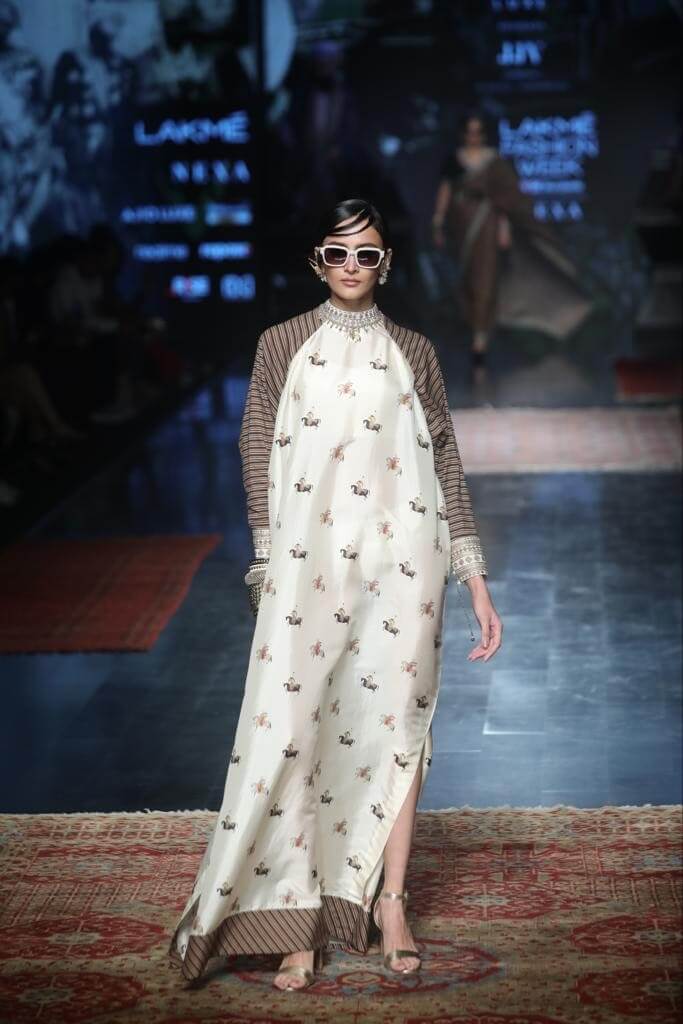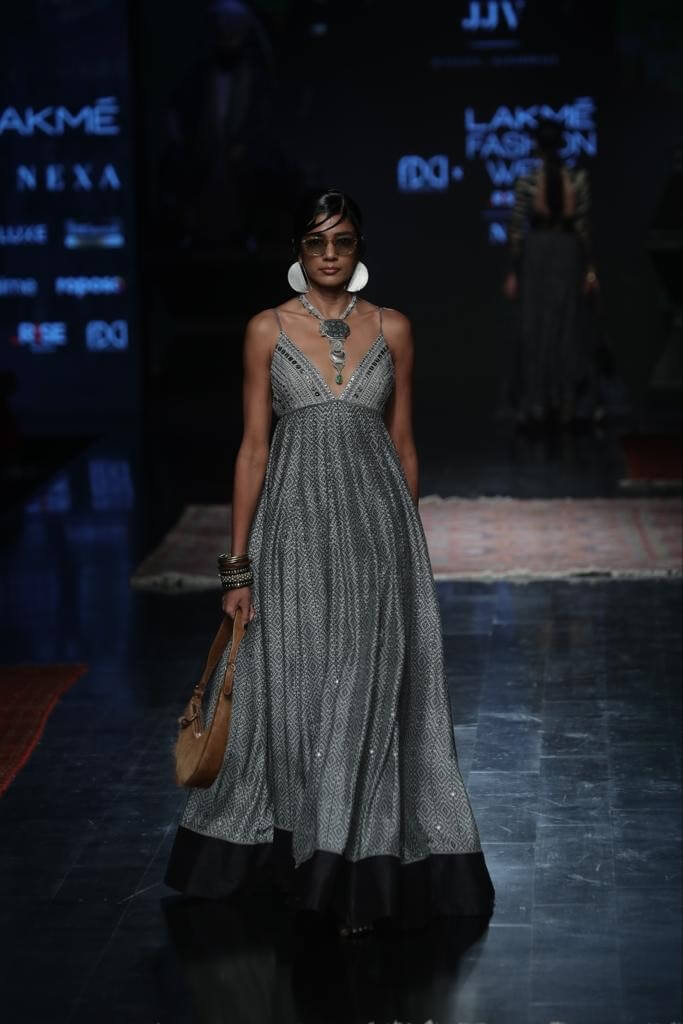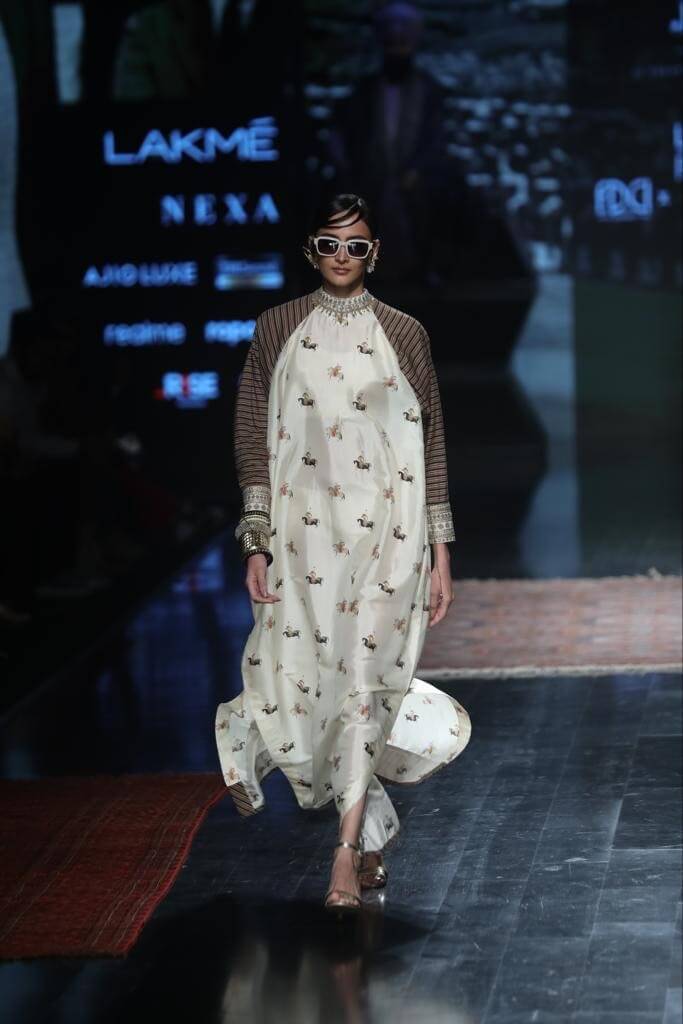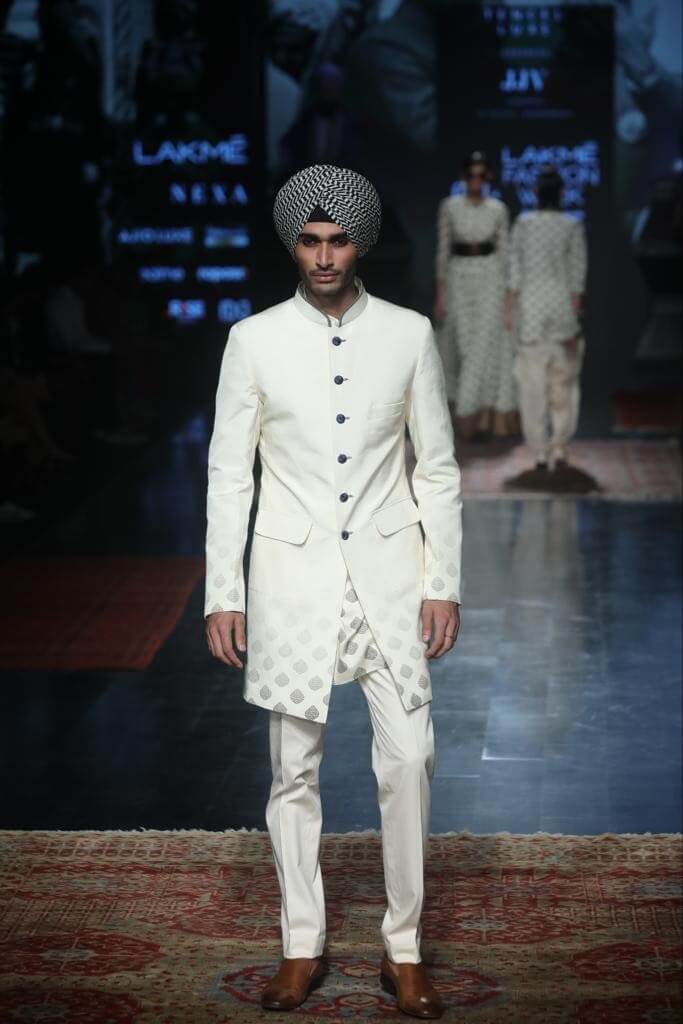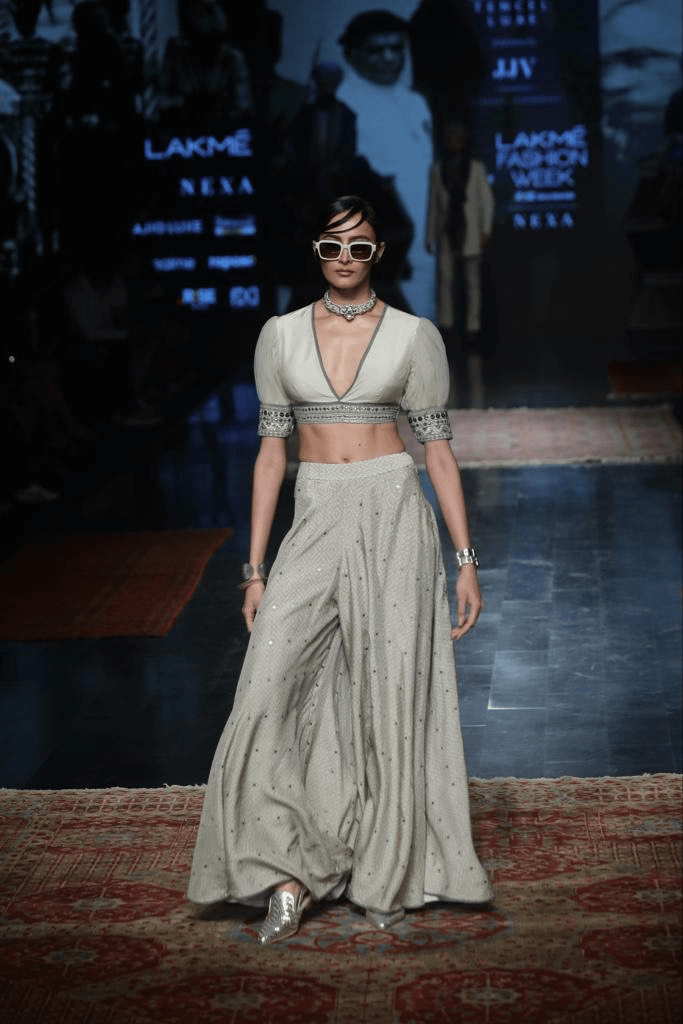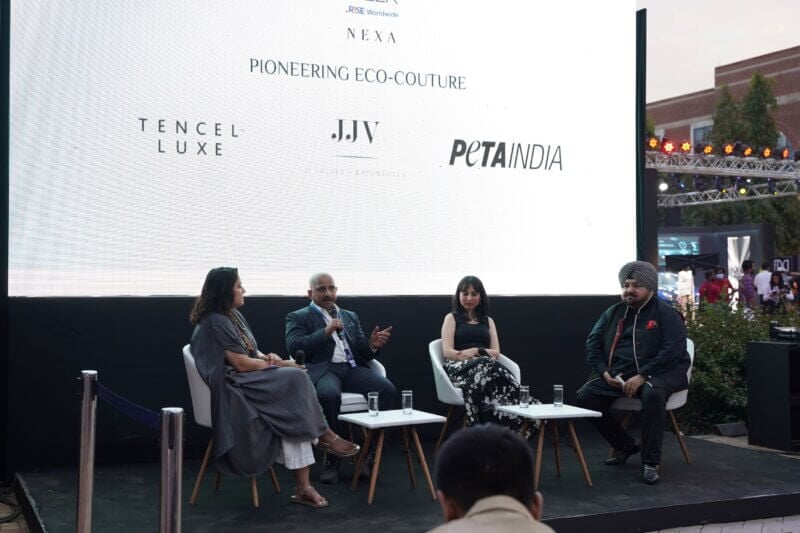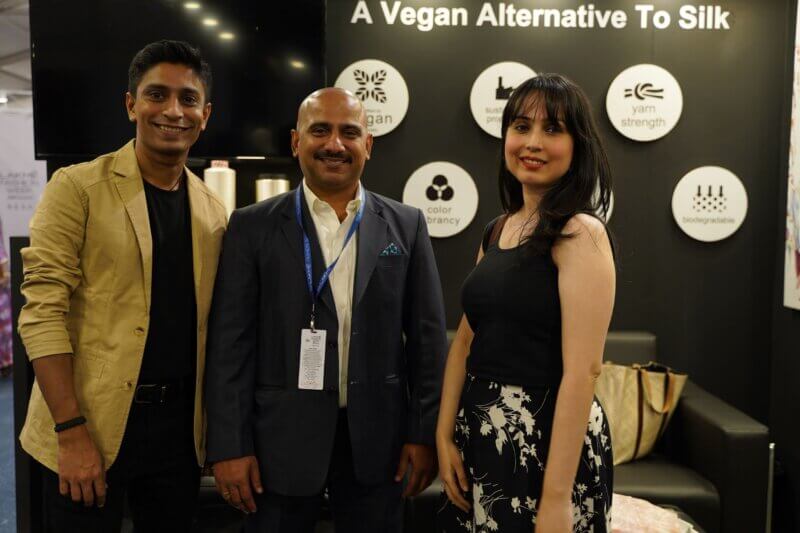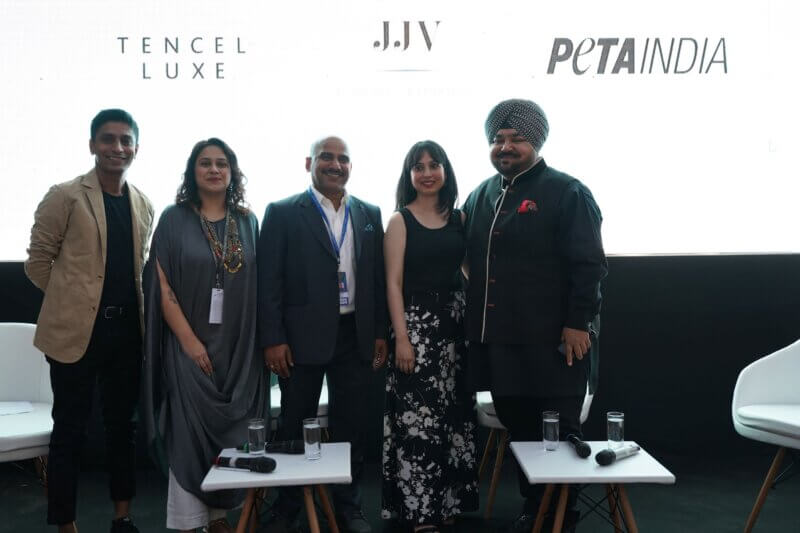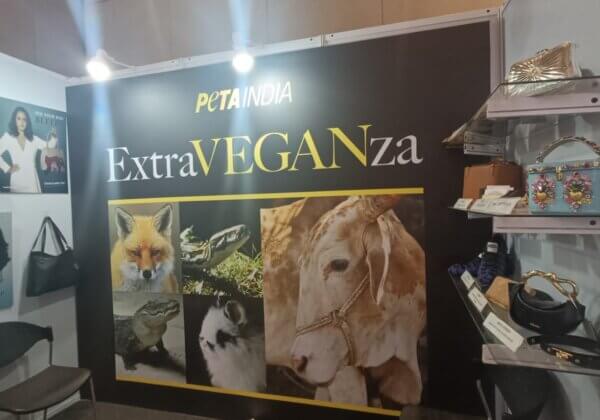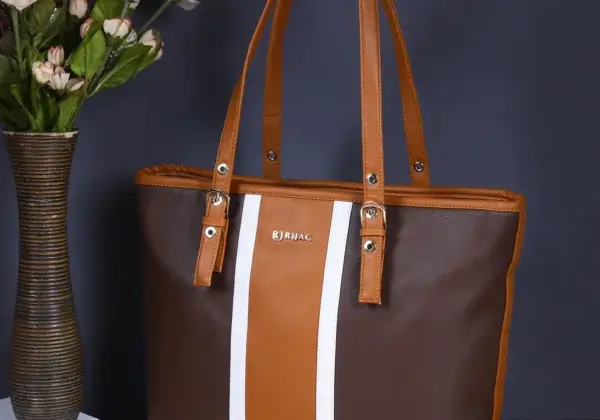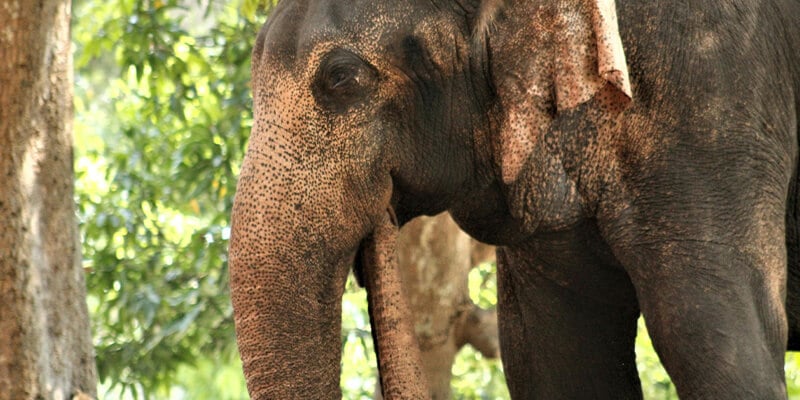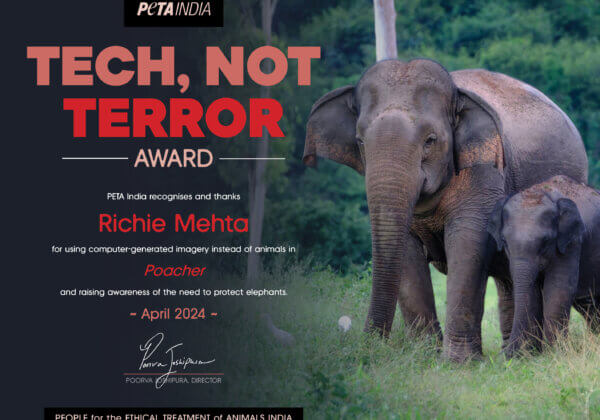JJ Valaya, PETA India, and TENCEL™ LUXE Discuss Vegan Silk at FDCI x Lakmé Fashion Week
The running of day one of the FDCI x Lakmé Fashion Week (LFW) was smooth – just like the new TENCEL™ LUXE filament yarn, which is derived from renewable wood sources in a closed loop Lyocell process. And it’s not just us singing the praises of this vegan silk – fashion mogul and ace designer JJ Valaya agrees! He joined us and TENCEL™ LUXE for a panel discussion at LFW in a bid to redefine luxury and make couture more conscious prior to his show, at which he displayed “Rumeli – The Summer Story”, an eco-conscious collection made of TENCEL™ LUXE vegan silk under his new “bridge-to-luxury” brand, JJV. Accompanying JJ Valaya were fellow panellists TENCEL™ LUXE Commercial Head AMEA (Asia Pacific, Middle East and Africa) Region Dr Pranesh Sridharan and PETA India Senior Media and Celebrity Projects Coordinator Monica Chopra. The talk was hosted by RISE Worldwide (LFW) Lead – Sustainability Darshana Gajare.
“TENCEL™ LUXE is transforming the future of premium fashion, and we are delighted to integrate this beautiful material into our belief of sustainable luxury,” says designer JJ Valaya.
BU Noble Fibers Vice President – Global Vineet Singhal, at Lenzing Group, which produces TENCEL™ LUXE, adds, “JJV symbolizes the values TENCEL™ LUXE stands for, which is conscious luxury, durability, ability to stand the test of time, along with a rich regal feel, very similar to silk. Indeed, TENCEL™ LUXE is a sustainable, eco-friendly, and vegan alternative to silk. We are glad to collaborate with JJV for this landmark collection in their journey.”
Silk, an overrated, outdated material, is made of the fibres produced by silkworms – a species of moth – to weave their cocoons. Instead of undergoing a miraculous metamorphosis like other moths do, silkworms used for silk are violently boiled or gassed alive – all in the name of fashion. To produce just 1 kilogram of silk, humans kill approximately 6,600 silkworms, and about 50,000 silkworms are killed to make a single saree. That means billions, if not over a trillion, silkworms are killed for this easy-to-replace material every year.
What’s more, the landmark 2017 “Pulse of the Fashion Industry” report on the environmental destruction caused by fabrics ranked silk as the second most damaging animal-derived material, and according to the Sustainable Apparel Coalition’s Higg Materials Sustainability Index, silk has a larger environmental impact when compared to other natural fibres. That’s because silk production requires enormous amounts of water and energy, including to control farm temperatures and for transporting materials. In fact, it takes approximately 85 to 1,000 tonnes of water to produce just 1 tonne of raw silk.
We can easily ditch cruel, environmentally damaging fabrics like silk, especially with the beautiful, affordable options on the market today, such as TENCEL™ LUXE.


